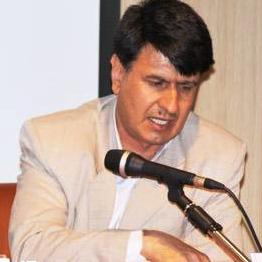Libya without Gaddafi

AB: To evaluate the recent developments in Libya and the likelihood of Gaddafi’s exit, we should consider the events during the last week. News indicates that the opposition has had some advances and is nearing Tripoli. Also, Gaddafi has accepted the African Union’s mediatory role. According to the African Union’s mediatory talks, it can be understood that Gaddafi has accepted to leave power.
Another important issue is Turkey’s mediatory role. Turkey wants to keep the opposition satisfied so that Gaddafi can leave the country.
The other issue is the international court decision that is pondering arresting Gaddafi, and this will be the second decision made against a president still at work. The first case was against Omar Al-Bashir during the Darfur crisis, in 2008.
All these signs indicate that we should be waiting for a Libya without Gaddafi. In addition, the permission for war given by the Security Council to the US and other European countries will soon end. The US Congress will surely put more pressure on the American government. Moreover, the opposition in the Security Council-- China and Russia-- will influence this case as well.
According to polls, if the foreign troops do not succeed in managing the situation in Libya, support for this invasion will decrease by the day. According to the latest news 57 % of the American people supported this operation in March, but now less than 40 % are supportive of it.
In addition the whole country is in control of the revolutionaries and many counties have accepted their participation in their agenda. About 13 countries have officially recognized the revolutionaries in Libya.
IRD: Even if Gaddafi leaves the country, will the opposition have enough power to rapidly end the crisis?
AB: Even though Libya will have a critical situation after Gaddafi, this process will take time. Everyone is interested to know the future of Libya after Gaddafi. One of the reasons why the West is compromising is that they have no replacement for Gaddafi. However, the transition council has been formed and some negotiations are taking place in Benghazi. These negotiations are aimed at reaching a minimum credibility for the opposition so that they can be the voice of the revolutionaries.
I think they were able to achieve this goal, but we should remember that the process of transition is not the only purpose behind this. Another important issue is the acceptance of this process by society. Libyan society has a tribal structure and change cannot occur rapidly in such a society. Also, usually conflicts take place between the proponents of the past regime and its opposition. These conflicts become bolder when people are armed. The Libyan people have arms in different parts of this country, and these tribes will surely descend into a quest for power after their mutual enemy, Gaddafi, is eliminated. Each tribe will try to merge with another group and become the hegemonic power, which takes both time and money.
Therefore, the situation after Gaddafi will not be a calm one. The more violence and bloodshed, the harder it becomes to calm down the situation.
However, the role of regional and foreign forces should not be forgotten. The West, Europe, and the US have all spent money in the Libyan crisis and have plans for it. They’ll try to minimize their expenditure in Libya, since it is an oil-rich country and the continuation of this crisis reduces the export of oil. The West also has many plans to bring stability to this country through serious planning.
IRD: How do you see Gaddafi’s future based on the available data? How probable is his arrest or his seeking asylum?
AB: Based on recent news they are trying to keep Gaddafi satisfied and he is not participating in the negotiations any more. This means that he will have no share of the power and wealth in the future. If he did participate, that would have meant that he was seeking a share for himself.
But based on the African Union negotiations, it seems that they are trying to make him leave the country and prevent his arrest or execution by the revolutionaries, therefore giving both sides some advantages. This will put an end to this war and persuade Gaddafi to leave the country. However, the international court order will warn Gaddafi to do this in all haste.

